‘No little one ought to be hungry or excluded’: how readers responded to our enchantment | Society
T.This year’s Guardian and Observer charity appeal aims to support young people whose lives have been devastated by Covid-19. The appeal has raised hundreds of thousands of pounds for three UK youth charities, the UK Youth, Youth and Child Poverty Action Group. More than 7,000 readers have already donated. Here six of them tell us why.
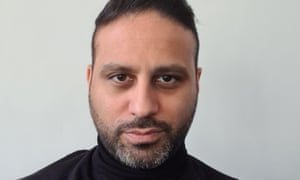
According to Jatinder Garcha, it is far more difficult for young people today than it was in the 1990s.
“I felt like the world was my oyster, and it is no longer the case for young people.”
Jatinder Garcha, 42
“As I went through school and university, it felt like something could be achieved, whatever your background – and I was from working-class Asia,” says Jatinder Garcha. “In the 1990s, it felt very hopeful, like the world was my oyster. I don’t think that’s how it feels to young people now. “
Garcha grew up in Kettering, Northamptonshire in the 1980s and 1990s and has fond memories of the youth services that supported him.
“We used to have a Salvation Army that ran a boys’ club. They would learn about handicrafts, building things, making Christmas games. I remember really appreciating this outlet. It got you out of your normal life, ”says Garcha, now 42, based in Qatar, where he works as a purchasing manager for a department store. “With community centers and clubs closing, it is more difficult for low-income people to do this. I hope the appeal can change the lives of young people and give them hope.
“It is a very difficult time with Covid and unemployment is rising. I have benefited a lot from the school, the clubs and the system that I went through. and I hope others can too. “
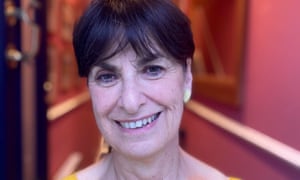
Stephanie Brada says she wants to give hope to young people.
“I want young people to see that others take care of it.”
Stephanie Brada, 66
For Stephanie Brada, the appeal was an opportunity to “bring hope back into people’s lives”.
“I hope the appeal will enable projects that allow young people to see that others care,” says Brada, who recently moved to London from Liverpool. “As someone nearing retirement, I mourn the plight of young people who are starting out.
“But after going through several recessions, we need to give them hope that things will change. I’ve been through a recession and work in the construction industry, which is always hit early and very hard. You feel like you are at a standstill and things are hopeless, but things are cycled. Other people are more willing to help than you think, and things will get better. “
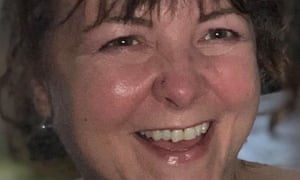
Josephine Makepeace wants to fight child poverty.
“Child poverty leaves lifelong scars”
Josephine Makepeace, 55
For Josephine Makepeace, who lives in Norwich, the appeal was a step forward in the fight against child poverty. “I lived in poverty as a child and it leaves lifelong scars,” she says. “You feel so isolated when your clothes aren’t as nice as other kids’ clothes, when you have to wear your grandmother’s shoes because your family can’t afford to buy you new ones if you don’t invite friends into your house like other children because you have no food and your house is dilapidated. “
“No child should be poor. No child should be hungry. No child should be excluded based on their parents’ behavior or circumstances, ”adds Makepeace. “We have lost countless brilliant minds and creative talents to this shameful and completely unnecessary scourge of child poverty.”
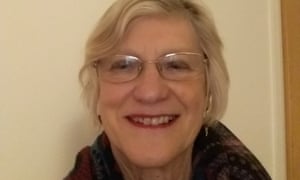
Carol Wood believes her generation was very lucky.
“These youngsters did not choose when they were born”
Carol Wood, 74
“I have benefited from free university education, free health care, and a decent pension. I didn’t choose to be born in 1947. These youngsters didn’t make up their minds when they were born, ”says Carol Wood, who lives near Bristol. “It’s a birth accident. When I was born, the vaccinations came, the war was over, and things should get better. I had free education including university and I got a job. Everything was there as long as you worked for it. “
Wood fears that a difficult job market and expensive university education will cause young people not to enjoy their youth. “As students in the 1960s, we had absolute confidence in the future, but it just got a little ugly,” she says. “It must lead to fears about what the future will look like for them. It creates a generational gap and I think we should all be in it together.
“I pass my luck on to the next generation.”
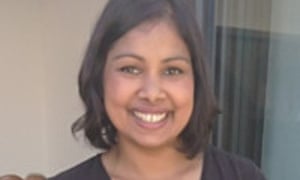
Henna Patel worries about BAME communities.
“My younger cousins are very concerned about the impact on their exams.”
Henna patel, 34
“The BAME communities suffered disproportionately during this pandemic, and the burden on young people in these communities was particularly high,” says Henna Patel.
“Fortunately, no one in my immediate family was affected, but family members who work on the front lines in hospitals, nursing homes, and schools have not been able to work from home. The burden on key workers has fallen on certain communities that tend to work in these positions. “
Patel, of Reading, Berkshire, hopes the Christmas Call can provide support to young people struggling with mental health due to the coronavirus pandemic.
“My younger cousins’ education has been cut and they are really into politics, which is great, but they are really concerned about the impact on their exams,” says Patel. “Many young people were also very affected at work.
“My mental health has suffered a lot and existing problems are coming to the fore,” she adds. “When I was younger, mental health wasn’t talked about and that’s still a problem in the BAME communities. When I saw the three charities, I thought it was so necessary to donate. Supporting young people’s mental health was a really good campaign. “
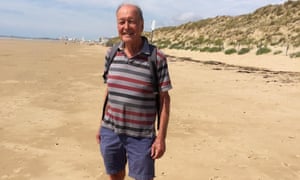
Huw Jones believes others needed his winter fuel payment more than he did.
“I wanted to support those who are struggling financially with the Covid crisis.”
Huw Jones, 75
“I feel deeply for younger people who have suffered financially and am donating my unneeded winter money,” says Huw Jones, a retired teacher who grew up in Wales and lives in London. “I am not affected financially [by the coronavirus pandemic] To a large extent, and my wife and I were very fortunate to have our camaraderie too, ”he says. “But I know that young people also lost jobs emotionally and had difficulties making ends meet. Their mental health is also at risk, and I want to help this age group. “


Comments are closed.